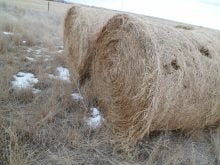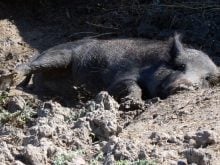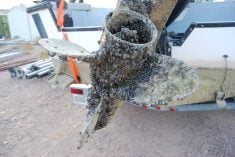Idaho state officials have activated a rapid response plan after invasive quagga mussels were found on the Snake River near Twin Falls.
State officials warn the invasive mussels threaten the Columbia River basin, which runs across the Pacific Northwest including British Columbia.
Related stories on this issue:
- Mussels close in on Alberta irrigation district
- Pink may be th panther in future mussel tussle
- Sask. remains on guard for invasive mussels
- Fighting invasive mussels comes with giant price tag
Read Also

New coal mine proposal met with old concerns
A smaller version of the previously rejected Grassy Mountain coal mine project in Crowsnest Pass is back on the table, and the Livingstone Landowners Group continues to voice concerns about the environmental risks.
An aggressive response plan began after the Sept. 27 public notice that mussels had been found in the river. They pose an immediate risk to the state’s extensive irrigation system that’s heavily reliant on the Snake River. Invasion also threatens municipal water intakes and hydro power production.
A copper-based molluskicide is being applied to portions of the Snake River around Twin Falls and portions of the river are closed to the public.
The Idaho situation is one Alberta aims to avoid through its ongoing surveillance program to prevent quagga and zebra mussels from entering the province, said Megan Evans, Alberta Invasive Species Council executive director.
“Prevention is the single best way to manage them,” she said.
Key to prevention is education on the threats invasive mussels pose to Alberta’s waterways and irrigation infrastructure, said Evans.
“We do a lot of work to spread ‘clean, drain, dry’ messaging to make people aware that there can be hitchhikers on their boats and watercraft and that we’re not just concerned about large motorboats. It’s also canoes and kayaks that could have mussel larvae on those watercraft and easily introduced into a waterbody,” she said.
Alberta has been pushing the message for years by adding inspection stops along provincial borders and using specially trained sniffer dogs that can detect invasive mussels.
“But those aren’t perfect,” said Evans about provincial inspection stations. “We don’t have them everywhere where we should have them, they aren’t open 24 hours, so we still need a major call out to the public to be aware of these issues and to clean, drain, dry any and all of their watercraft as they are moving them around.”
Evans stressed it’s mandatory for all watercraft, even collapsible paddle boards, to be inspected at stations when open.
“You are legally required to stop at those boat inspection stations,” she said. “The awareness piece is so important because the boat inspection stations are not perfect, they are not everywhere, they are not open year-round, 24/7. There are gaps and we really need a call to action to the public to be aware.”
An invasive mussel infestation would be costly on both an ecological and financial scale.
“They can not only completely change the ecosystem, the food web, water clarity and all those things but they can also pose a major economic risk as well. A report came out almost 10 years ago suggesting that should Alberta become infested with zebra mussels, we’d be looking at $75 million a year just to manage them,” said Evans.
Those costs would primarily be due to efforts to maintain southern Alberta’s irrigation system, which could see its pipes and canals clogged.
“They attach themselves to any hard surface and they all pack together — attach to all of the pipes and all of the irrigation infrastructure and completely clog it up,” said Evans.
The mussels also devastate recreational beaches by littering shorelines with sharp shells, she added.
Alberta has yet to record an instance of invasive mussels reaching its waterways, but last year a mussel-encrusted barge being shipped overland from Ontario to B.C. crossed through the province before being stopped in B.C. That instance required B.C. to launch its largest ever mussel decontamination effort after being alerted about the barge.


















